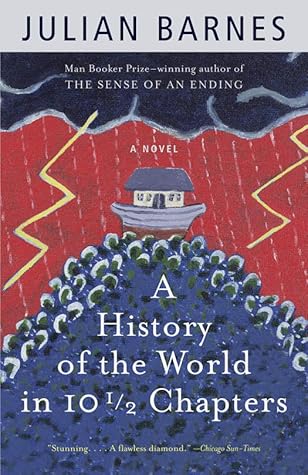More on this book
Community
Kindle Notes & Highlights
You only followed where you were going if you wanted to get back to where you had started from, and she knew that was impossible.
Too much is going on. You can tell more by showing less.
there were two explanations of everything, that each required the exercise of faith, and that we had been given free will in order that we might choose between them.
Poets seem to write more easily about love than prose writers. For a start, they own that flexible ‘I’ (when I say ‘I’ you will want to know within a paragraph or two whether I mean Julian Barnes or someone invented; a poet can shimmy between the two, getting credit for both deep feeling and objectivity). Then again, poets seem able to turn bad love – selfish, shitty love – into good love poetry. Prose writers lack this power of admirable, dishonest transformation. We can only turn bad love into prose about bad love. So we are envious (and slightly distrustful) when poets talk to us of love.
The Canadian writer Mavis Gallant put it like this: ‘The mystery of what a couple is, exactly, is almost the only true mystery left to us, and when we have come to the end of it there will be no more need for literature – or for love, for that matter.’
‘I love you.’ For a start, we’d better put these words on a high shelf; in a square box behind glass which we have to break with our elbow; in the bank. We shouldn’t leave them lying around the house like a tube of vitamin C. If the words come too easily to hand, we’ll use them without thought; we won’t be able to resist. Oh, we say we won’t, but we will.
We think of it as an active force. My love makes her happy; her love makes me happy: how could this be wrong? It is wrong; it evokes a false conceptual model. It implies that love is a transforming wand, one that unlooses the ravelled knot, fills the top hat with handkerchiefs, sprays the air with doves. But the model isn’t from magic but particle physics. My love does not, cannot make her happy; my love can only release in her the capacity to be happy. And now things seem more understandable. How come I can’t make her happy, how come she can’t make me happy? Simple: the atomic reaction you
...more
History isn’t what happened. History is just what historians tell us.
The history of the world? Just voices echoing in the dark; images that burn for a few centuries and then fade; stories, old stories that sometimes seem to overlap; strange links, impertinent connections. We lie here in our hospital bed of the present (what nice clean sheets we get nowadays) with a bubble of daily news drip-fed into our arm. We think we know who we are, though we don’t quite know why we’re here, or how long we shall be forced to stay. And while we fret and writhe in bandaged uncertainty – are we a voluntary patient? – we fabulate. We make up a story to cover the facts we don’t
...more
Love is anti-mechanical, anti-materialist: that’s why bad love is still good love. It may make us unhappy, but it insists that the mechanical and the material needn’t be in charge.


